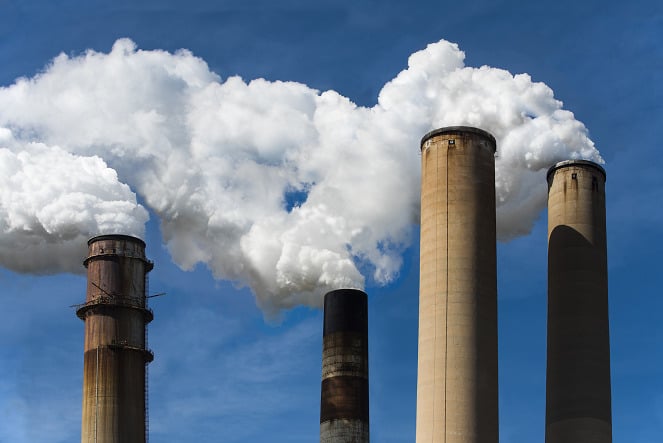Major oil and gas companies have confirmed they are to invest US$1 billion over the next decade in an attempt to drastically cut their emissions, but have left renewable power development off the table.
Reports circulated earlier this week that BP, Shell, Total, Statoil, Saudi Aramco, CNPC, Reliance Industries, Eni, Repsol and Pemex – all of whom form the Oil & Gas Climate Initiative (OGCI) – would be making a major announcement today (Friday 4 November) to coincide with the Paris Agreement coming into force.
The OGCI confirmed the move today, revealing that improved energy and transport efficiencies would play a pivotal role in their bid to cut emissions.
A joint statement issued by the heads of the ten companies read: “The creation of OGCI Climate Investments shows our collective determination to deliver technology on a large-scale that will create a step change to help tackle the climate challenge. We are personally committed to ensuring that by working with others our companies play a key role in reducing the emissions of greenhouse gases, while still providing the energy the world needs.”
The companies noted that improved energy and operational efficiencies – particularly flaring reduction – have the potential to save greenhouse gas emissions and money, so represent a “dual incentive”.
“OGCI members are active individually, but our opportunity is to find technologies where collaboration between our companies and others within our industry can deliver a step change at a very large scale. Many solutions applicable in the oil and gas sector will also be relevant to other energy-intensive industries,” a statement issued by OGCI read.
More efficient transport is to also be a focus of the group, which intends to work closely with manufacturers to develop more efficient engines and “advanced fuel-engine combinations” to “minimise the sector’s greenhouse gas impact”.
The OGCI has also pledged to formulate a plan to progress towards net zero emissions after 2050.
But while further pledges also incorporate support for technologies such as Carbon Capture and Storage (CCS), further adoption and development of renewables-based power – as alluded to in stories leaked to media outlets earlier this week – has failed to materialise and there appears to be no additional commitment to renewable power.
And the annual budget set aside by the OGCI – effectively US$100 million per year for the next ten years – has also been criticised as it is a fraction of the companies’ overall budget. Figures compiled by the Energy & Climate Intelligence Unit revealed the annual budget of six publically traded companies taking part in the scheme to be in excess of US$85 billion, meaning that the budget allocated to climate matters would represent just 0.1% of the total annual budget of six of the ten OGCI members.
Speaking after the announcement, Dr Jonathan Marshall, energy analyst at the ECIU, said the proposals were a “drop in the ocean”.
“Investing $1 billion over ten years averages to just $10 million per year per company involved. For comparison, Shell’s capex budget for 2016 alone is $25-29 billion, Saudi Aramco values itself at more than $2 trillion, and the cost incurred by BP following the Deepwater Horizon spill was $61.6 billion. Relative to these numbers, this figure is a drop in the ocean.
“Again, for comparison the Breakthrough Energy Coalition, comprised of philanthropists, has pledged double the oil companies’ planned clean energy investment. Bill Gates’ contribution alone matches that of the OGCI.
“The business models of these companies are fundamentally incompatible with the commitment governments gave at the Paris climate summit to keep global warming well below 2 Celsius. And this announcement shows that oil and gas companies are contemplating no real deviation from their traditional business models.
“From an investor point of view, one wonders how wise this is, given for example recent International Energy Agency figures forecasting an accelerating switch to renewable energy, and the observation from Shell this week that we could see demand for oil peak within five years,” he said.






